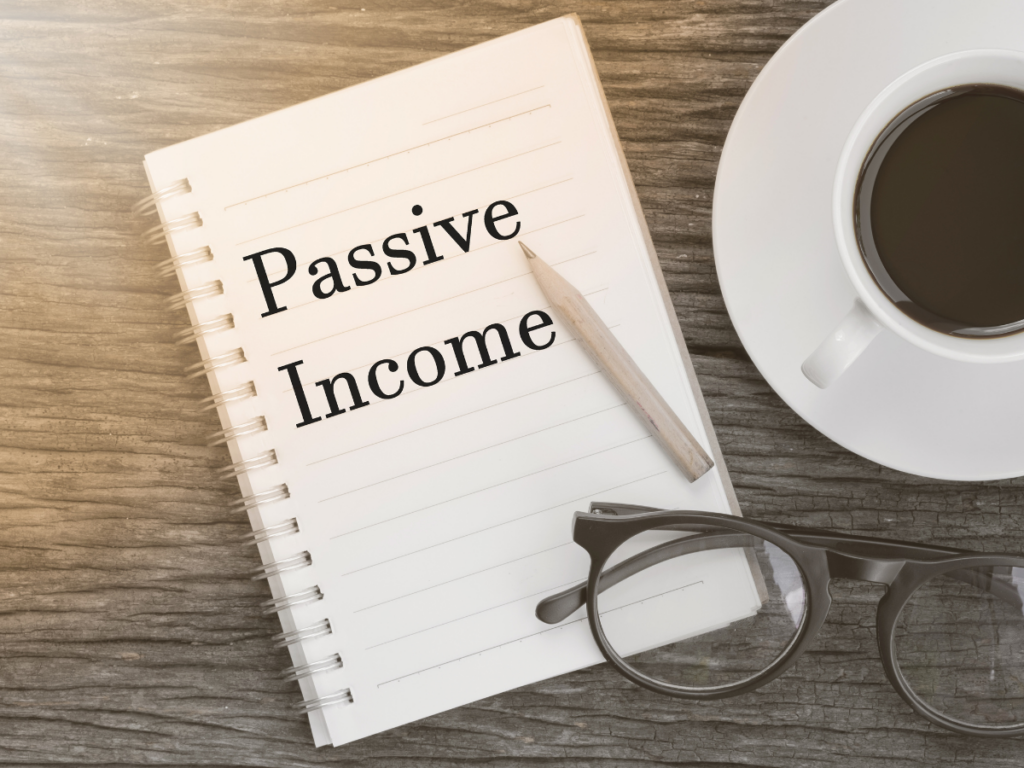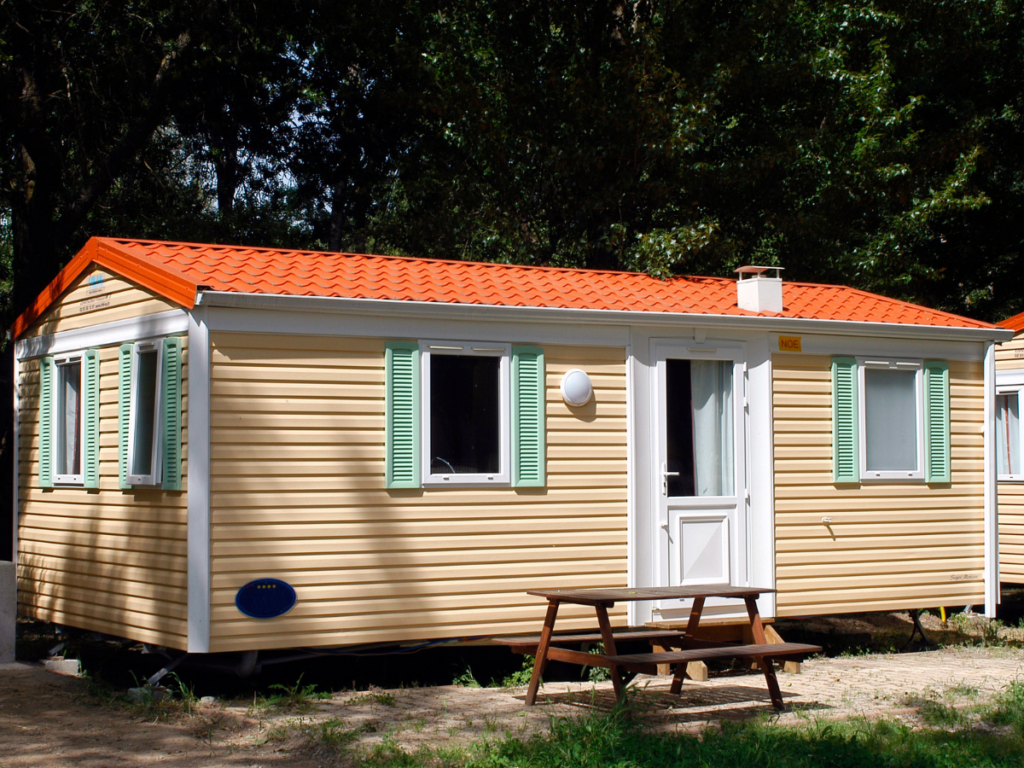Passive Real Estate Investing in Mobile Home Parks
-
 Tristan Hunter - Investor Relations
Tristan Hunter - Investor Relations
Passive income streams have become a sought-after goal for many investors. Among various real estate investment strategies, passive real estate investing in mobile home parks stands out as a unique and potentially lucrative opportunity. This comprehensive guide explores how investing in mobile home parks can be a smart move for those looking to earn passive income.

The Basics of Passive Real Estate Investing in Mobile Home Parks
Passive real estate investing involves earning income from real estate without the need for day-to-day involvement in property management. Mobile home parks, in particular, offer a compelling option for passive investing. These properties typically consist of land leased to individuals who own or rent their mobile homes. This model creates a steady stream of rental income while minimizing the maintenance responsibilities typically associated with other types of real estate investments.
Why Mobile Home Parks?
- Potential for Stable Cash Flow: Mobile home parks often provide a consistent and stable source of rental income. With affordable housing in demand, vacancies tend to be lower compared to other types of real estate.
- Potentially Lower Operating Costs: Operating and maintenance costs in mobile home parks are typically lower than those in traditional apartment complexes or single-family homes.
- Potentially Long-Term Tenants: Mobile home park residents often stay for extended periods, resulting in lower turnover and reduced expenses related to tenant acquisition.
- Historically Diverse Tenant Base: These communities usually attract a diverse tenant base, including retirees, working-class families, and individuals seeking affordable housing options.
- Likely Resilience in Economic Downturns: Mobile home parks tend to perform well even during economic downturns, as people still need affordable housing.
Advantages of Passive Real Estate Investing in Mobile Home Parks
Passive real estate investing in mobile home parks typically offers several advantages that set it apart from other types of real estate investments.
Reduced Operational Involvement
One of the main benefits of passive investing in mobile home parks is the typically reduced need for active involvement. Investors usually delegate the day-to-day management tasks to a property management company, often making it a truly passive income source.
Diversification of Investment Portfolio
Investing in mobile home parks can diversify your investment portfolio. It provides an alternative to traditional real estate investments like residential or commercial properties, spreading risk across different types of assets.
Potential for High Returns
Mobile home parks can potentially offer higher yield returns compared to other real estate investments. The combination of steady rental income and lower overhead costs contributes to potentially higher profit margins.
Download our free eBook on the “Top 10 Things to Review When Considering a Passive Mobile Home Park Investment “
By Andrew Keel

Strategies for Passive Real Estate Investing in Mobile Home Parks
Investing passively in mobile home parks presents a potentially strategic way to generate income with minimal personal involvement. Here are several methods that enable passive investment in this niche market.
Investing Through Real Estate Syndications
Real estate syndications involve pooling funds with other investors to purchase a mobile home park. This approach allows individuals to participate in larger deals that might otherwise be out of reach. The syndicate is typically managed by experienced operators, making it a hands-off investment for the individual investors.
Using Crowdfunding Platforms
Crowdfunding platforms offer a way to invest in mobile home parks with relatively small amounts of capital. These platforms connect investors with real estate projects, including mobile home parks, allowing for diversified and accessible investment opportunities.
REITs Specializing in Mobile Home Parks
Real Estate Investment Trusts (REITs) that specialize in mobile home parks provide a way to invest in this sector without owning physical property. REITs pool investor funds to buy and manage real estate portfolios, and shareholders earn income through dividends.
Joining an Investment Group or Club
Investment groups or clubs focused on real estate can offer opportunities to invest in mobile home parks. These groups pool resources and expertise to invest in properties, often providing a passive investment option for their members.
Private Lending or Note Investing
Investors can also consider private lending or note investing as a passive investment strategy. This involves providing financing to park owners or investing in mortgage notes associated with mobile home parks, earning income from the interest on these loans.
Turnkey Mobile Home Park Investments
Some companies offer turnkey investment opportunities in mobile home parks. These investments are fully managed by the company, offering a completely passive option for investors. The investor typically owns a share of the property and receives a portion of the rental income.
Limited Partnerships
Investing as a limited partner in a mobile home park project is another passive approach. Limited partners usually contribute capital but are not involved in the day-to-day management of the property. They share in the profits but also have limited liability.
By choosing one of these passive investment methods, individuals can likely benefit from the potential returns of mobile home park investments without the need for active management. This makes it a historically attractive option for those seeking to diversify their investment portfolios and generate passive income.

Tax Considerations in Passive Real Estate Investing
Understanding the tax implications of investing in mobile home parks is crucial. Investors can benefit from various tax advantages such as depreciation, expense deductions, and potential capital gains tax savings. Consulting with a tax expert can help maximize these benefits.
The Role of Technology in Passive Investing
Leveraging technology can potentially enhance the efficiency of passive real estate investing in mobile home parks. Property management software can assist with rent collection, maintenance management, and tenant communication, further reducing the need for active involvement.
Overcoming Challenges in Mobile Home Park Investing
While passive real estate investing in mobile home parks offers numerous advantages, there are challenges to be aware of. Market fluctuations, regulatory changes, and management issues can likely impact the success of the investment. It’s important to stay informed and adapt to changing circumstances.
Conclusion: A Smart Choice for Passive Income
Passive real estate investing in mobile home parks represents a smart choice for investors seeking a historically stable and potentially lucrative passive income source. With the right approach, thorough research, and effective management, mobile home parks can be a potentially valuable addition to any investment portfolio. As the demand for affordable housing continues to grow, mobile home parks typically offer a unique opportunity to capitalize on this trend while enjoying the benefits of passive income.
At Keel Team Mobile Home Park Investments, our commitment extends beyond mere investment. We strive to improve the quality of life in our mobile home communities while simultaneously delivering substantial returns to our limited partner investors. For more information on our investment strategy or to learn more, please feel free to contact us using the provided details below.
Learn more about mobile home park investing.
Interested in learning more about mobile home park investing? Get in touch with us today to find out more.
Disclaimer:
The information provided is for informational purposes only and should not be considered investment advice, nor a guarantee of any kind. There are no guarantees of profitability, and all investment decisions should be made based on individual research and consultation with registered financial and legal professionals. We are not registered financial or legal professionals and do not provide personalized investment recommendations

Tristan Hunter - Investor Relations
View The Previous or Next Post
Subscribe Below 👇





